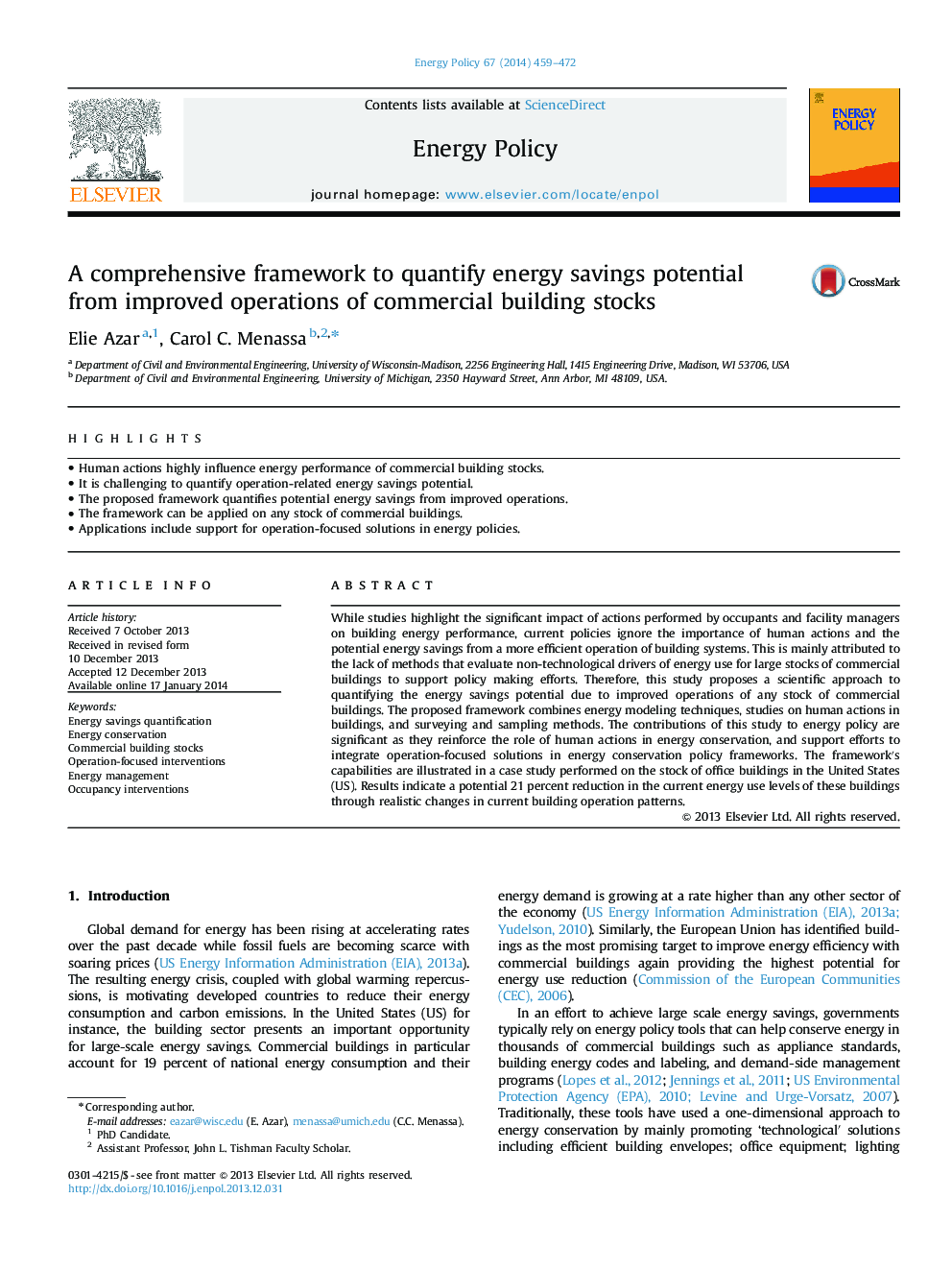| Article ID | Journal | Published Year | Pages | File Type |
|---|---|---|---|---|
| 7402509 | Energy Policy | 2014 | 14 Pages |
Abstract
While studies highlight the significant impact of actions performed by occupants and facility managers on building energy performance, current policies ignore the importance of human actions and the potential energy savings from a more efficient operation of building systems. This is mainly attributed to the lack of methods that evaluate non-technological drivers of energy use for large stocks of commercial buildings to support policy making efforts. Therefore, this study proposes a scientific approach to quantifying the energy savings potential due to improved operations of any stock of commercial buildings. The proposed framework combines energy modeling techniques, studies on human actions in buildings, and surveying and sampling methods. The contributions of this study to energy policy are significant as they reinforce the role of human actions in energy conservation, and support efforts to integrate operation-focused solutions in energy conservation policy frameworks. The framework's capabilities are illustrated in a case study performed on the stock of office buildings in the United States (US). Results indicate a potential 21 percent reduction in the current energy use levels of these buildings through realistic changes in current building operation patterns.
Keywords
Related Topics
Physical Sciences and Engineering
Energy
Energy Engineering and Power Technology
Authors
Elie Azar, Carol C. Menassa,
